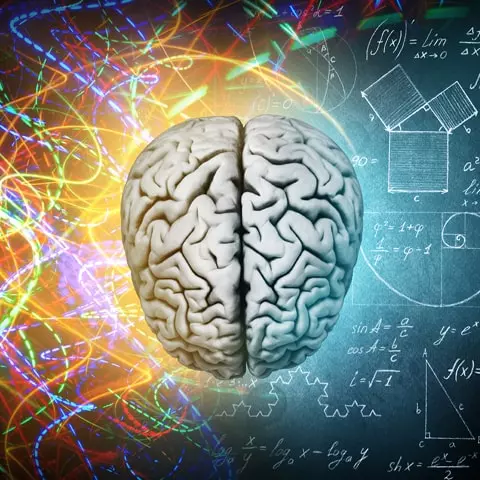
Researchers may have found a way to deliver an effective treatment directly into the brains of Alzheimer's patients. Faced with Alzheimer's disease, the primary neurodegenerative disease affecting 72% of nursing home residents and accounting for 225,000 new cases annually, medication remains largely powerless. While in some rare cases, we observe an improvement in cognitive functions, the current medications on the market primarily aim to stabilize the disease's progression and manage its symptoms. Nevertheless, certain scientific advances instill a glimmer of hope. Where do we stand in Alzheimer's disease treatment research?
Alzheimer's disease characteristics
Alzheimer's disease is characterized by two physiological features in the brain: the presence of senile plaques and neurofibrillary degeneration. While certain risk factors have been identified, there is currently no specific cause known to trigger these disease-related mechanisms. Senile plaques primarily consist of amyloid peptides, which are normally present in the body but tend to aggregate and form senile plaques in an Alzheimer's-affected brain, continually increasing in number. Neurofibrillary degenerations, on the other hand, are tangles of fibrils located within neurons.
Find YOUR ideal care home NOW!
Which memory is affected in alzheimer's disease?
The initial symptoms of Alzheimer's disease typically involve memory problems. It is important to distinguish between different types of memory we use in our daily lives.
- Short-term memory, also known as working memory, allows us to memorize short-lived information like addresses or phone numbers and relies on the prefrontal cortex.
- Long-term memory includes implicit and explicit memory. Implicit memory encompasses unconscious processes and motor skills, such as riding a bike. Explicit memory includes episodic memory, or autobiographical memory, and semantic memory, which defines our general knowledge.
Alzheimer's disease affects short-term memory and explicit memory but does not typically impact implicit memory. Impairment of episodic memory explains difficulties in temporal and spatial orientation, necessitating a controlled environment for the individual and often leading to admission to a nursing home with a dedicated unit for Alzheimer's patients. Individuals with Alzheimer's disease also tend to struggle with finding words, confusing them, initially forgetting abstract concepts, and using general phrases instead of precise expressions, as semantic memory is affected. Cognitive impairments can also lead to behavioral disturbances such as agitation, aggressiveness, or disinhibited behaviors. Hallucinations may occur in the later stages of the disease.
Current treatments for Alzheimer's disease
There are specific and non-specific treatments for Alzheimer's disease.
Non-specific treatments, such as antipsychotic medications, primarily target behavioral issues to limit their manifestation. Depression, which is often associated with the disease, is frequently treated with antidepressants.
Specific medications for Alzheimer's disease fall into two main categories:
- Cholinesterase inhibitors like donepezil, galantamine, or rivastigmine aim to increase acetylcholine levels in the brain and appear to improve patient behavior.
- Memantine is an antagonist of glutamate. This neurotransmitter is typically released during memory formation, but in Alzheimer's patients, it accumulates and becomes toxic.
A medication delivered directly to the brain of Alzheimer's patients
It's worth noting that the primary cause of Alzheimer's disease is the accumulation of a protein called beta-amyloid (Aβ) in brain tissues. This accumulated protein is responsible for neuron death in various brain regions.
However, there is a specific protein called "nerve growth factor" possessing reparative properties capable of slowing down the disease's progression. While its properties have been scientifically proven, researchers have faced a major challenge: finding a way to deliver this protein to the brain. The human brain is protected by a blood-brain barrier (BBB) that prevents the infiltration of foreign substances like bacteria or other harmful agents. Consequently, this specific protein that could combat neuron death cannot cross the blood-brain barrier. Some clinical trials have attempted to inject the protein into the brain using a catheter, but this invasive method carries significant risks for patients.
Challenges and Benefits of Multidisciplinary Research
| Challenges | Benefits |
|---|---|
| Difficulty in communication between different fields. | Encourages innovative approaches and diverse perspectives. |
| Different methodologies and terminologies. | Enhances comprehensive understanding of Alzheimer's disease. |
| Funding constraints for interdisciplinary projects. | Leads to more effective diagnosis and treatment strategies. |
| Time-consuming collaboration processes. | Improves patient care through holistic solutions. |
Researchers from the Israel Institute of Technology and Bar-Ilan University recently hope to have found a way to deliver the protein to the brain using a nanoscale silicon chip. The chip, loaded with therapeutic protein, is designed to gradually release the active substance in the targeted area of the brain, then degrade completely without posing any risk to the patient. The chip's advantage is that it allows the introduction of the protein directly into the brain without needing to cross the blood-brain barrier.
Researchers have successfully implanted the chip into the brain of a living animal, using a "gene gun" initially designed to inject DNA into plant cells. The study also focused on the optimal use of the gene gun. Resembling a nasal spray device, the gene gun injects the silicon chip, along with protein particles, through the nose, which is directly connected to the brain, thus bypassing the blood-brain barrier.
Pre-clinical studies are currently underway and should, if successful, lead to clinical trials.
FAQ:
Q1: Why is multidisciplinary collaboration important in Alzheimer's research?
A: Alzheimer's is a complex disease affecting multiple systems. Collaboration between neuroscientists, psychologists, gerontologists, and technology experts allows for a more holistic understanding and better solutions.
Q2: What are the main barriers to interdisciplinary research in Alzheimer's?
A: Communication difficulties, differences in research methodologies, funding limitations, and challenges in integrating findings from various disciplines.
Q3: How can AI and machine learning help in Alzheimer's research?
A: AI can analyze large datasets, identify patterns in brain imaging, and help develop predictive models for early diagnosis and treatment personalization.
Q4: What role do social scientists play in Alzheimer’s research?
A: Social scientists examine the impact of Alzheimer’s on patients and caregivers, helping to shape policies and improve care practices.
Q5: How can breaking silos improve patient outcomes?
A: By integrating knowledge from multiple fields, researchers can develop better diagnostic tools, treatment strategies, and caregiving approaches, ultimately enhancing patients' quality of life.
Need help finding a care home?
Senior Home Plus offers free personalized guidance to help you find a care facility that suits your health needs, budget, and preferred location in the UK.
Call us at 0203 608 0055 to get expert assistance today.
Do you need a care home or Alzheimer's care facility for yourself or your loved one?
Search for Care Homes by Region
| East Midlands | Eastern | Isle of Man |
| London | North East | North West |
| Northern Ireland | Scotland | South East |
| South West | Wales | West Midlands |
| Yorkshire and the Humber |
Share this article :
Latest posts
You are looking for an establishment for your loved one ?
Get availability & prices
Fill in this form and receive
all the essential information
We would like to inform you of the existence of the opposition list for telephone canvassing.











